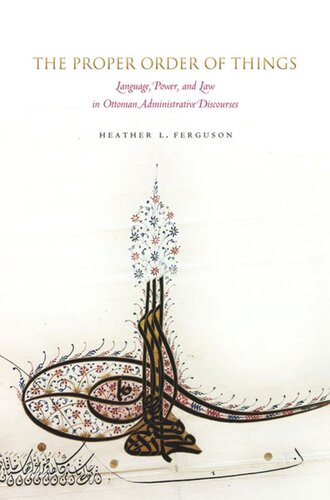

Most ebook files are in PDF format, so you can easily read them using various software such as Foxit Reader or directly on the Google Chrome browser.
Some ebook files are released by publishers in other formats such as .awz, .mobi, .epub, .fb2, etc. You may need to install specific software to read these formats on mobile/PC, such as Calibre.
Please read the tutorial at this link: https://ebookbell.com/faq
We offer FREE conversion to the popular formats you request; however, this may take some time. Therefore, right after payment, please email us, and we will try to provide the service as quickly as possible.
For some exceptional file formats or broken links (if any), please refrain from opening any disputes. Instead, email us first, and we will try to assist within a maximum of 6 hours.
EbookBell Team

5.0
98 reviewsThe "natural order of the state" was an early modern mania for the Ottoman Empire. In a time of profound and pervasive imperial transformation, the ideals of stability, proper order, and social harmony were integral to the legitimization of Ottoman power. And as Ottoman territory grew, so too did its network of written texts: a web of sultanic edicts, aimed at defining and supplementing imperial authority in the empire's disparate provinces. With this book, Heather L. Ferguson studies how this textual empire created a unique vision of Ottoman legal and social order, and how the Ottoman ruling elite, via sword and pen, articulated a claim to universal sovereignty that subverted internal challengers and external rivals.
The Proper Order of Things offers the story of an empire, at once familiar and strange, told through the shifting written vocabularies of power deployed by the Ottomans in their quest to thrive within a competitive early modern environment. Ferguson transcends the question of what these documents said, revealing instead how their formulation of the "proper order of things" configured the state itself. Through this textual authority, she argues, Ottoman writers ensured the durability of their empire, creating the principles of organization on which Ottoman statecraft and authority came to rest.